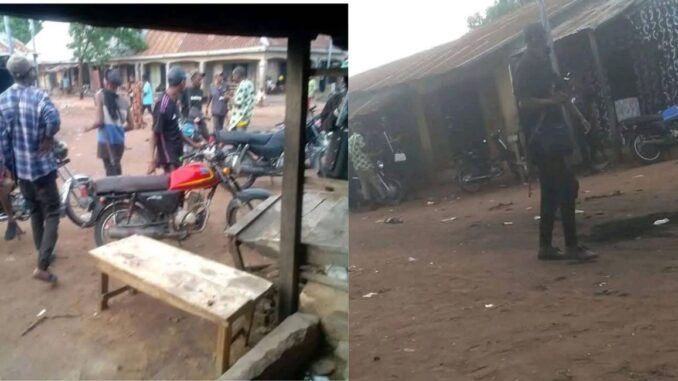News
UK govt, stakeholders move against organised crime in Nigeria
By Francesca Hangeior.
THE United Kingdom hosted a multi-stakeholders’ meeting in Abuja to discuss how its Serious and Organised Crime, SOC, Prevent Programme is making significant strides in deterring vulnerable young people from joining Organised Crime Groups in Nigeria.
The meeting included representatives from the Federal Ministry of Justice, Ministry of Police Affairs, the Nigeria Police Force, Nigeria Security and Civil Defence Corps, NSCDC, National Agency for the Prohibition of Trafficking in Persons, NAPTIP, National Drug Law Enforcement Agency, NDLEA, INTERPOL, Office for Strategic Preparedness and Resilience, OSPRE, Ministry of Police Affairs, Defense Intelligence Agency, DIA, Economic and Financial Crimes Commission, EFCC, and others.
The programme, launched as a three-year pilot in December 2021, is designed to disrupt Nigerian Organised Crime Groups, by redirecting at-risk youth towards positive alternatives in Bayelsa, Edo, Zamfara and Lagos states.
Collaborating closely with the Nigeria Police Force, the programme has trained 83 officers in the Prevent methodology, reinforcing the commitment to institutionalise this approach in tackling SOC.
To date, approximately 1,500 beneficiaries across the four states have been diverted from potential involvement in organised crime.
Speaking at the meeting, the Acting British High Commissioner to Nigeria, Gill Lever said: “Serious and Organised Crime is a priority for both Nigeria and the UK, and can take many forms. Ranging from online-focused activities like cybercrime to the physical movement of illicit commodities and people in the form of trafficking.
“Our results in Nigeria have proven that the prevent methodology works, and it has been successful in diverting young people from choosing a life of crime. I believe that the valuable discussions that took place today will smoothen the way for Prevent to be fully institutionalised in Nigeria.”
News
Reps Tackle CBN, OAGF Over Missing Grants, Bailout Funds

According to him, such financial mishandling not only disrupts critical public services and projects but also results in major losses to the nation’s purse—resources that could have been channelled into crucial services and developmental efforts, as laid out in Section 14(2)(b) of the Constitution.
Speaker Abbas, thereafter setup a Special Committee to be chaired by Rep. Chinedu Martins to immediately launch a probe into the “Utilisation of take-off grants, bailout funds, and interventions allocated to MDAs, government institutions, and GOEs from 2015 to present.”
News
Abuja light rail project must be commissioned on May 29-Wike vows

The FCT Minister, Mr. Nyesom Wike, expressed satisfaction with the progress on the Abuja light rail project, reaffirming its May 29 delivery as sacrosanct.
He made these assurances after inspecting the ongoing construction of access roads to the train stations on Wednesday, from Metro Train Station in the Central Area to Nnamdi Azikiwe International Airport, Abuja.
Reassuring journalists accompanying him, the minister reiterated that President Bola Tinubu would commission the rail project on May 29 to mark his second year in office.
The visited stations were Wupa station near Idu and Bassanjiwa station near the airport.
“This is part of our routine inspection of ongoing projects to see the contractors’ progress,” Wike explained.
“We are working day and night to fulfill our promise to President Tinubu and FCT residents. By May, Mr. President will ride on the Metro line.”
News
Just in: Alleged Herdsmen Armed With AK-47 Rifles Take Over Communities In Benue State

Gunmen suspected to be Fulani herdsmen are currently invading some communities in the Ukum Local Government Area of Benue State.
According to sources, the herdsmen armed with AK-47 rifles stormed the community around 04:15pm on Thursday.
“Our lives are in danger this evening, armed Fulani herdsmen, about 600 in numbers have taken over our communities this evening,” a resident told SaharaReporters.
“They’re currently moving around towns in Ukum Local Government Area of Benue state. No security personnel at all, Governor Alia didn’t send security, they said operation will start soon once they (herders) have observed the place.”
The insecurity situation in Benue has been alarming in recent weeks with attacks from gunmen suspected to be herdsmen.
The media had reported that suspected herdsmen again unleashed terror in Benue State, attacking three communities in Otukpo Local Government Area (LGA) on Wednesday, just a day after 11 people were killed in a deadly raid on Otobi community.
The latest victims of the escalating violence were Emichi, Odudaje, and Okpamaju, communities that had previously suffered an attack in February, which left five people dead.
However, the renewed attack has created fear and mass displacement among residents, with women and children fleeing to safety.
Local sources say the death toll from the fresh attack remains unclear, but several casualties are feared.
-

 News8 hours ago
News8 hours agoBREAKING: Unknown gunmen reportedly storm Senator Natasha’s family residence
-

 News11 hours ago
News11 hours agoSnub story on removal of Rivers Sole Administrator, it’s FAKE-Chief Registrar
-

 News17 hours ago
News17 hours ago“How my father escaped assassination” – Bishop Oyedepo’s daughter
-

 News17 hours ago
News17 hours agoFG expresses sympathy for CBEX victims, urges a united effort to combat Ponzi schemes
-

 News10 hours ago
News10 hours agoSAD! Again, Alleged Herdsmen Attack Three Benue Communities
-

 Politics10 hours ago
Politics10 hours agoPDP govs are jokers, can’t stop coalition train, Atiku boasts
-

 News23 hours ago
News23 hours agoEl-Rufai labels Tinubu’s government ‘worst in Nigeria’s history’
-

 News17 hours ago
News17 hours agoWoman tragically lost her life after attempting to flee through glass door during alleged incident of domestic violence


















